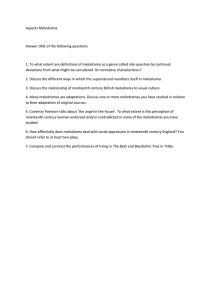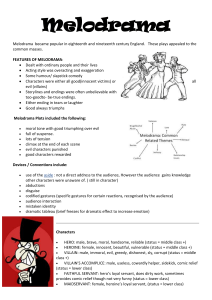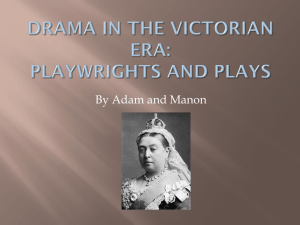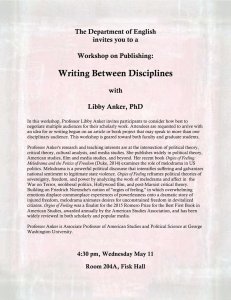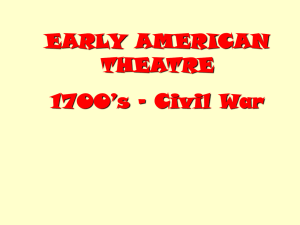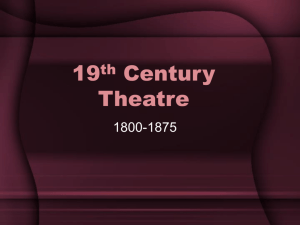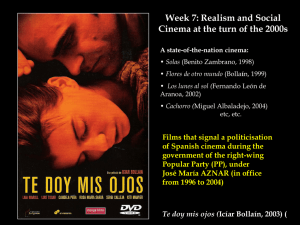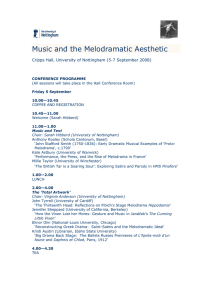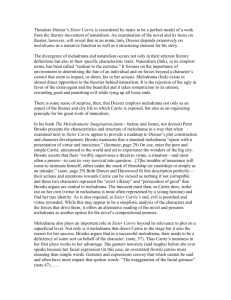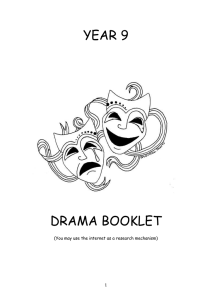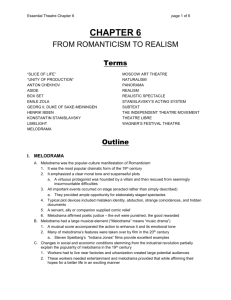Melodrama: History, Characteristics, and Famous Works
advertisement
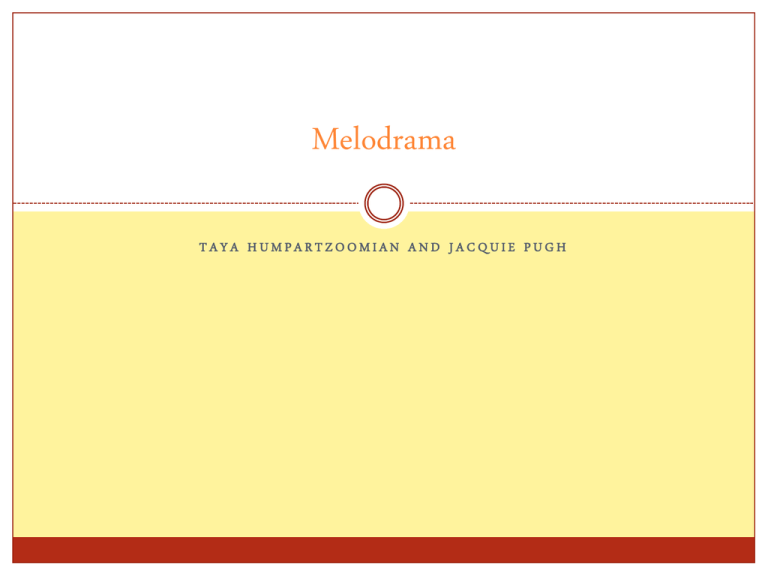
Melodrama TAYA HUMPARTZOOMIAN AND JACQUIE PUGH Melodrama ˈmɛlə(ʊ)drɑːmə/ noun 1. a sensational dramatic piece with exaggerated characters and exciting events intended to appeal to the emotions. "he gloated like a villain in a Victorian melodrama" 2. historical a play interspersed with songs and orchestral music accompanying the action. The Beginning Originated in France but quickly transferred to America. Melodrama dominated the American stage from 1850-1920. It was said to be more real than reality at the time It made the greater evil easier to identify and the problems easier to find solutions to. Virtue was the foundation of melodrama. Works were parodies of social issues or the works of other playwrights. Virtue Social issues of the day could be acted out. Audience goers could understand the moral stories of the plays. It provided an outlet for American’s emotions. There was something about addressing the current issues in society that attracted audiences. Staging • The plays were performed on Thrust or Proscenium Arch stages. • There was very elaborate staging including earthquakes and volcanoes on stage. • The plays were accompanied by music, hence the term “melo”, meaning melody. Costumes Costumes were made to reflect the class that the character was in: lower, middle, or upper. Often, one or more costume pieces reflected or accentuated a character’s personality. Stock Characters A hero A heroine A villain A villain’s accomplice A faithful servant A maid servant Famous Works J. J. Rousseau's melodrama Pygmalion (1762; first performed 1770) helped create a vogue for stage plays. Famous examples of stage melodramas include East Lynne by Mrs. Henry Wood and Ten Nights in a Barroom by W. W. Pratt. Melodrama in the Media Melodrama can also be found in older and modern day film. Charlie Chaplin is a great example of an actor who used melodrama techniques to communicate. TV series have been created off of melodrama. An example is the British TV series ‘Mr. Bean’. Sir Henry Irving (1830’s-1905) He began his acting career in 1856, appearing with various provincial Stock companies. During the following ten years he played over 600 parts By 1866 he was established in London Another five years later he found over night fame in ‘The Bells’ In 1895 he became the first actor to be knighted for his achievements Ellen Terry (1847-1928) Ellen never went to school and at the age of eight appeared as Mammilius in The Winter's Tale at the Prince's Theatre in London In 1864, Terry established herself as Britain's leading Shakespearean actress In 1878 she formed a partnership with Henry Irving at the Lyceum. She dominated English theatre for over twenty years In 1903 Terry went into theatre management and with her son helped to popularize the work of Henrik Ibsen and George Bernard Shaw. Performance “EXAM” SKIT FROM MR. BEAN
